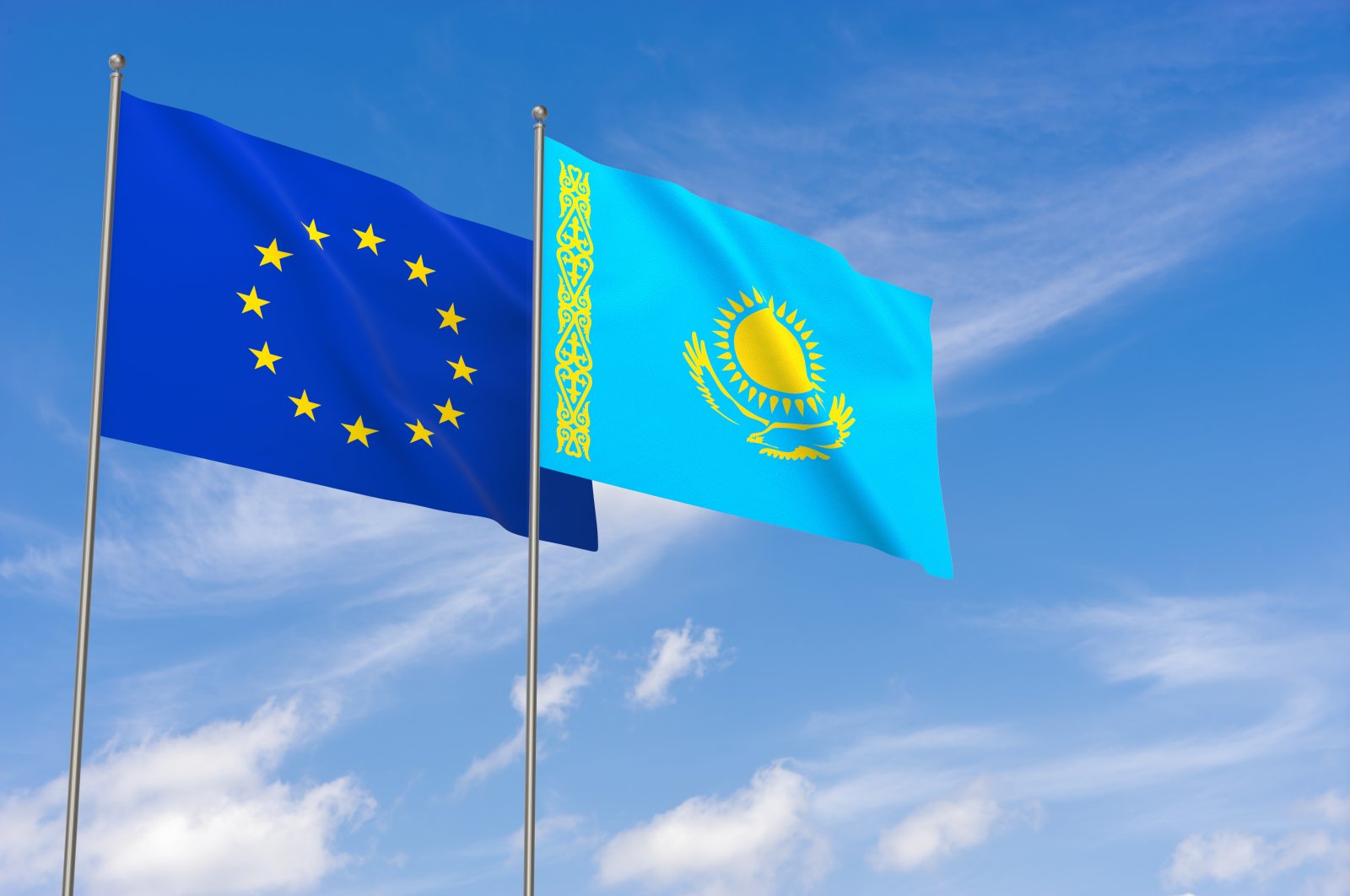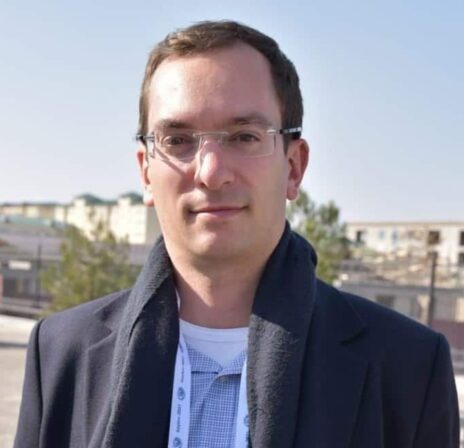Kazakhstan and the European Union (EU) will mark the 30th anniversary of the establishment of diplomatic relations on February 2, 2023. Over the course of thirty years, bilateral ties have grown into a robust and multi-faceted partnership.

Photo credit: shutterstock.com
Several elements of this partnership stand out: the EU is Kazakhstan’s leading trade and investment partner, accounting for nearly half of the country’s foreign trade and accumulated foreign investment. Kazakhstan was the first country in the Central Asian region to sign a next-generation Enhanced Partnership and Cooperation Agreement (EPCA). And the EU has, throughout these three decades, been a reliable and unshakeable pillar of Kazakhstan’s multi-vector foreign policy.
From the early days of Kazakhstan’s independence, the EU was seen, if not as a model, at least as a normative standard to advance its reforms across many spheres including the judiciary, education and regional integration. Perhaps the most vivid example in this regard is the 2009-2011 “Path/Way to Europe” national programme which sought to enhance all-round cooperation and aid Kazakhstan develop its nascent institutions based on European best practices. It came at a time when the EU had adopted its very first strategy for Central Asia (2007) and when Kazakhstan was preparing for its chairmanship of the Organization for Security and Co-operation in Europe (OSCE) in 2010 (Kazakhstan was the first and to date only Central Asian country to hold the OSCE chairmanship).

Alberto Turkstra.
Economic and trade links dominated the early years of the relationship, which has expanded into other areas including education, culture and a strong people-to-people component. The EU has been assisting Kazakhstan reform its education sector through programmes such as Tempus and Erasmus+ and creating academic exchange and mobility opportunities for Kazakh students through the Erasmus Mundus scholarship scheme. European national cultural centers such as the Alliance Française and the Goethe Institute have also contributed to bringing Kazakh youth closer to European history, culture, and other sectors.
In addition, Kazakhstan is the sole Central Asian state that participates in the Bologna Process, which it joined in 2010, thereby becoming the 47th member of the European Higher Education Area. Last year, Kazakhstan held the co-chairmanship of the Bologna Follow-Up Group (BFUG) alongside the Czech Republic. Kazakhstan took such an opportunity to present an action plan aimed at, inter alia, the expansion of the autonomy of universities; the formation of a digital ecosystem and the creation of a single Central Asian space of higher education.
Kazakhstan has conducted a steady and predictable foreign policy throughout the years, driven by long-term interests. During the past geopolitically turbulent year, which proved to be a significant test for its foreign policy, Kazakhstan has remained firmly on the side of the United Nations Charter and its basic principles including the respect for sovereignty and territorial integrity, which was highly appreciated by partners including the EU. There is furthermore an advanced level of interaction between both sides in multilateral fora, be it at the UN Human Rights Council (where Kazakhstan is currently a member for the 2022-2024 period); the UN Security Council (where Kazakhstan served as non-permanent member between 2017 and 2018, becoming the first Central Asian country to do so); or through its proactive role as a contributor to UN Peacekeeping Operations.
In the context of the reconfiguration of global supply chains, the acute energy crisis in Europe, and the need for new alternative routes that connect Asia and Europe, connectivity has become an area of strategic importance where there is a mutual interest for further cooperation. The Middle Corridor has become a focal point for both the EU and Kazakhstan; as it remains the most viable solution to enable smooth and unimpeded trade flows between EU and Central Asia, even if at present it is unable to fully meet volume and capacity demands.
Specifically, the effective connection of the Eurasian rail routes with the core networks of the Trans-European Transport Network (TEN-T) is a key priority. Currently, the European Bank for Reconstruction and Development (EBRD) is finalizing a EU-funded study to examine the best possible connections between Central Asian countries and the European TEN-T network, with special attention devoted to rail but touching on interoperability with other modes of transport (road and maritime). The study, which is expected to be ready in mid-2023, will propose key actions for developing these corridors and concrete recommendations for the removal of bottlenecks and capacity shortages.
Ambitious political reforms undertaken by President Kassym-Jomart Tokayev, which have accelerated after the tragic January events of last year, open new avenues of cooperation with the EU. The leadership of the country has started paying significantly higher attention to issues such as accountability, rule of law and transparency. One of the most notable measures is the limitation of the presidential mandate to a single term of seven years without the right of re-election, a bold and heretofore unseen step in Central Asia. The country finds itself at a stage of “controlled pluralism”, and the upcoming snap parliamentary elections due to take place on March 19 will provide an opportunity for Kazakhstan to demonstrate its commitment to political modernization. The registration of two new political parties in the last few weeks – Baitak Green Party and Respublica Party – is an important first step in this direction.
Even when there are hiccups in the relationship, such as when the European Parliament passed two resolutions critical of the human rights situation in Kazakhstan (The Resolution of February 11, 2021 on the human rights situation in Kazakhstan and the Resolution of January 20, 2022 on the situation in Kazakhstan following the tragic January events), the answer of the Kazakh authorities, while rejecting some of the questionable and rushed conclusions outlined in the above-mentioned resolutions, has consistently been to keep the door of (inter-parliamentary) dialogue open, calling for greater engagement and increasing the frequency of high-level visits from Astana to Brussels to explain its position and engage with the EU leadership.
As the world navigates unprecedented global geopolitical and economic challenges, closer cooperation between Kazakhstan and the EU has become essential. The recent flurry of high-level visits from the EU to Kazakhstan (including those of President of the European Council Charles Michel and High Representative for Foreign Policy Josep Borrell) demonstrates the willingness by Brussels to continue to engage with Astana and further strengthen relations. The cooperation during the past thirty years, and the results achieved, provide a very solid base on which the Kazakhstan-EU partnership can keep unfolding and reaching new heights across all spheres.
The author is a Brussels-based Central Asia expert and Project Manager, Diplomatic World Institute.
